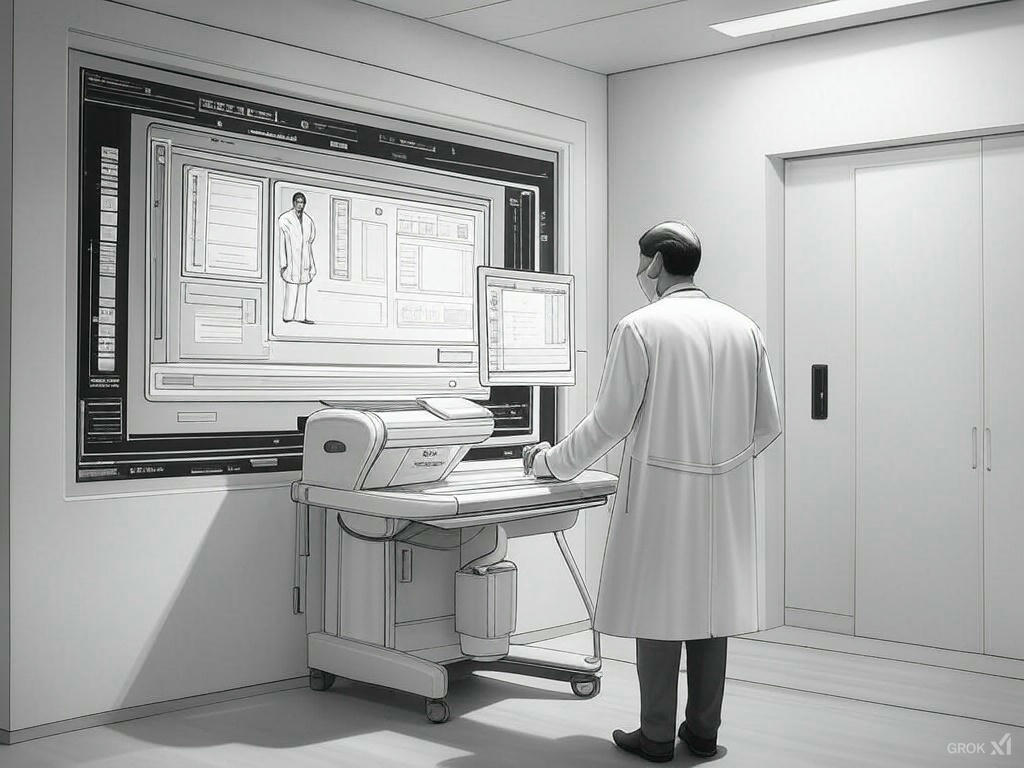A new stage of AI-assisted precision: Medical field documentation management.
Discover how docAnalyzer.ai enhances document analysis, streamlines patient records, and improves insurance claims with AI analysis and OCR PDF.

Dr. Emily Chen and Her Small Medical Practice
Dr. Emily Chen runs a small but busy family practice in Seattle, serving over 1,000 patients annually. As the sole physician with a small administrative team, she juggles managing patient care, organizing medical records, and handling insurance and billing documentation.
Over time, she noticed growing challenges, such as patient records were often difficult to retrieve or cross-reference during consultations; insurance claims processing was slow, with frequent errors leading to delays in reimbursements. Her team spent hours manually extracting data from EHRs and billing documents, leaving little time for other tasks.
“I have researched different AI platforms to help me with my tasks and decided to adoptdocAnalyzer.aito address my clinical documentation needs”, shares Dr. Chen.
Patient Records Management
Challenge: I needed an efficient way to access and organize patient records without sifting through piles of paper or poorly integrated digital systems.
Steps Taken:
Data Upload: I uploaded the clinic's EHR files into docAnalyzer.ai. The system supported bulk uploads of diverse file formats (PDFs, Word documents, and scanned handwritten notes).
Automated Categorization: The platform automatically organized patient data into categories such as medical history, recent diagnoses, medications, allergies, and lab results.
Search Optimization: Using the AI’s advanced search function, I could instantly retrieve specific records. For example, during a consultation, I searched for "John Peters - allergies" and immediately accessed the relevant section without combing through the full file.
Summary Extraction: docAnalyzer.ai summarized lengthy patient histories into concise snapshots, tremendously saving my time during appointments. As a result, I reduced the time spent searching for and interpreting patient records by 50%.
Insurance and Billing
Challenge: Another challenge - Insurance claims were frequently delayed due to missing or incorrectly submitted data, resulting in cash flow issues and patient dissatisfaction.
Steps Taken:
Document Review and Error Detection: I uploaded claims forms, invoices, and supporting documents into docAnalyzer.ai, then asked to filter out specific data. The AI immediately flagged incomplete sections, missing codes, or discrepancies in patient information.
Standardized Data Extraction: The platform extracted key details, such as patient names, insurance policy numbers, and ICD-10 codes, ensuring accuracy.
Batch Processing: Instead of handling claims one by one, my team could process them in batches, with docAnalyzer.ai auto-filling repetitive fields like clinic details and physician identification numbers.
Tracking and Reporting: The tool provided a dashboard to track the status of each claim—submitted, approved, or denied—along with reasons for denial and suggestions for corrections. Since I started using docAnalyzer.ai, my insurance claim approval rate improved by 40%, and the average processing time dropped from weeks to days. Within a couple of months the clinic saw a noticeable improvement in cash flow and patient satisfaction.
"docAnalyzer.ai has transformed how we manage our practice. It's like having a virtual assistant that never gets tired and always gets it right. I can finally focus on my patients without worrying about administrative hurdles." says Dr. Chen.
Before docAnalyzer.ai:
Dr. Chen and her team spent hours managing records and insurance claims, leaving little time for proactive patient outreach.
Errors in documentation created delays and frustration for patients and staff.
After docAnalyzer.ai:
Patient records became instantly accessible and better organized, improving consultation efficiency.
Insurance claims were processed faster and more accurately, reducing financial stress on the clinic.
The administrative team reclaimed over 10 hours weekly, which they redirected toward improving the clinic’s operations and patient experience.
As the healthcare sector continues to evolve, the demand for AI-driven solutions like docAnalyzer.ai is only set to grow. By simplifying document analysis, enhancing accuracy, and delivering actionable insights, it positions itself as an indispensable tool in modern medicine.
Whether it’s expediting research, improving patient outcomes, or ensuring compliance, docAnalyzer.ai empowers healthcare professionals to focus on what truly matters—providing exceptional care. In a world where data is king, tools like docAnalyzer.ai are the keys to unlocking a smarter, more efficient healthcare system.
Use Cases of docAnalyzer.ai in the Medical Field
Patient Records Management
docAnalyzer.ai can extract key details from electronic health records (EHRs), such as diagnoses, treatment plans, and test results. This helps clinicians quickly access the information they need to provide personalized care.
Clinical Trial Management
Conducting clinical trials involves handling enormous volumes of data, from patient recruitment to regulatory submissions. docAnalyzer.ai streamlines these processes by identifying relevant patient candidates, summarizing trial outcomes, and ensuring compliance with reporting standards.
Medical Research and Literature Review
For researchers, reviewing scientific literature can be daunting. docAnalyzer.ai can analyze and summarize large sets of research papers, highlighting key findings, methodologies, and trends, saving time and boosting productivity.
Insurance and Billing Documentation
Handling insurance claims often involves navigating complex documentation. docAnalyzer.ai automates the extraction of relevant data, ensuring accurate claims processing and reducing disputes.
Regulatory Compliance Documentation
Hospitals and clinics must adhere to strict documentation standards. docAnalyzer.ai can audit records for compliance, flagging missing or inconsistent information to avoid penalties.
Drug Safety and Pharmacovigilance
Monitoring adverse drug reactions requires analyzing vast amounts of clinical and patient data. docAnalyzer.ai enables rapid identification of safety signals, supporting regulatory reporting and patient safety initiatives.
Telemedicine Support
With telemedicine on the rise, docAnalyzer.ai can assist in summarizing patient histories and prior consultations for doctors, ensuring that virtual visits are as informed and effective as in-person ones.